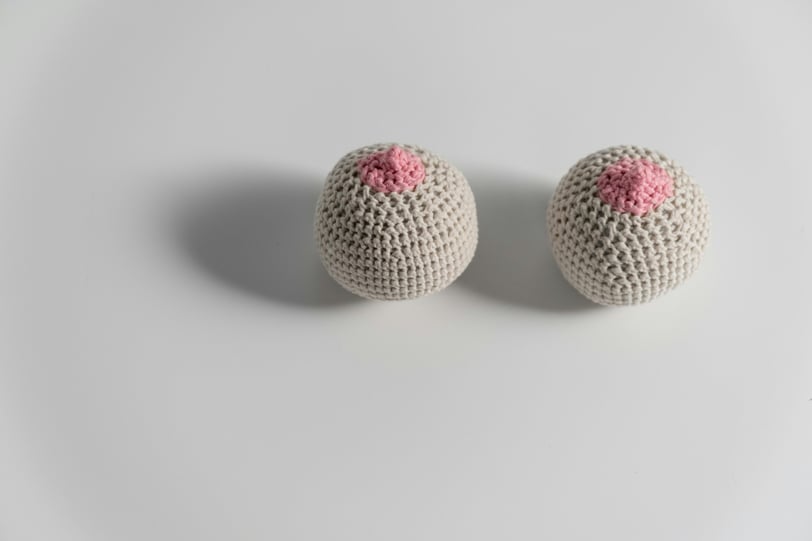Best Diet for Breastfeeding Moms to Boost Nutrition and Energy
Discover the best diet for breastfeeding moms to boost energy, enhance milk supply, and support baby’s growth with nutrient-rich foods and essential meal tips.


Breastfeeding is a beautiful yet demanding journey that requires proper nutrition to support both mom and baby. The best diet for breastfeeding moms is one that is balanced, nutrient-dense, and designed to meet increased energy and hydration needs. Understanding what to eat and what to avoid can help ensure both mother and baby receive the essential nutrients for optimal health.
Why Nutrition Matters for Breastfeeding Moms
A well-rounded diet directly impacts breast milk quality and ensures the baby receives adequate vitamins, minerals, and healthy fats. The best diet for breastfeeding moms should include a mix of macronutrients, micronutrients, and hydration to support milk production and overall well-being.
Essential Nutrients in the Best Diet for Breastfeeding Moms


1. Protein-Rich Foods for Sustained Energy
Protein is essential for repairing tissues and producing breast milk. Aim for lean proteins such as:
Chicken, turkey, and lean beef
Eggs and dairy products
Beans, lentils, and chickpeas
Tofu and tempeh
Nuts and seeds
2. Healthy Fats for Brain Development
Healthy fats contribute to baby's brain and eye development. Focus on:
Avocados
Olive oil and coconut oil
Fatty fish like salmon, sardines, and trout
Chia seeds and flaxseeds
Nuts such as almonds, walnuts, and cashews
3. Complex Carbohydrates for Energy
Breastfeeding burns a significant amount of calories, making carbohydrates crucial for maintaining energy levels. Opt for:
Whole grains like brown rice, quinoa, and oats
Sweet potatoes and other root vegetables
Legumes like lentils and black beans
Fruits such as bananas, berries, and apples
4. Calcium for Bone Health
Breastfeeding moms lose calcium through milk production, making it important to replenish with:
Dairy products like milk, cheese, and yogurt
Leafy greens such as kale and spinach
Almonds and sesame seeds
Fortified plant-based milk alternatives
5. Iron to Prevent Fatigue
Iron deficiency can lead to fatigue and weakened immunity. Include:
Lean red meat
Dark leafy greens
Beans and lentils
Iron-fortified cereals
Pumpkin seeds
6. Hydration for Optimal Milk Supply
Staying hydrated is key for maintaining milk supply and preventing dehydration. Ideal fluids include:
Water (aim for at least 8-10 glasses per day)
Herbal teas like chamomile or fennel
Coconut water
Homemade smoothies
Foods to Avoid in the Best Diet for Breastfeeding Moms


1. High-Mercury Fish
Certain fish contain high mercury levels that can pass through breast milk, including:
Shark
Swordfish
King mackerel
Tilefish
2. Caffeine in Excess
While moderate caffeine is generally safe, too much can affect baby’s sleep. Limit intake to:
One to two cups of coffee per day
Avoid energy drinks and excessive soda consumption
3. Alcohol Consumption
Alcohol passes into breast milk and can affect a baby’s development. If consuming alcohol, follow safe guidelines, such as waiting 2-3 hours before breastfeeding after one drink.
4. Highly Processed and Sugary Foods
Avoid refined sugars and ultra-processed foods that provide little nutritional value, such as:
Sugary cereals
Fast food
Soda and packaged snacks
Sample Meal Plan for the Best Diet for Breastfeeding Moms


Breakfast:
Oatmeal with chia seeds, banana, and almond butter
A glass of fortified plant-based milk or regular milk
Mid-Morning Snack:
Greek yogurt with berries and honey
Handful of mixed nuts
Lunch:
Grilled salmon with quinoa and roasted vegetables
Leafy green salad with olive oil dressing
Afternoon Snack:
Whole grain crackers with hummus
Fresh carrot and cucumber slices
Dinner:
Stir-fried tofu with brown rice and steamed broccoli
A glass of water with lemon
Evening Snack:
A smoothie with spinach, mango, flaxseeds, and Greek yogurt
Tips for Maintaining the Best Diet for Breastfeeding Moms


Meal Prep for Convenience Prepping healthy snacks and meals ahead of time can prevent reliance on unhealthy options.
Listen to Your Body Hunger levels may fluctuate while breastfeeding, so eat nutrient-rich foods when needed.
Consider Supplements If Needed Some moms may need additional vitamins, such as Vitamin D, B12, or Omega-3s, after consulting a healthcare provider.
Avoid Drastic Dieting Extreme calorie restriction can impact milk supply. Focus on nutrient-dense foods rather than cutting calories excessively.
Seek Support Consulting a dietitian or lactation expert can provide personalized guidance for optimal nutrition.
Final Thoughts on the Best Diet for Breastfeeding Moms
Eating a well-balanced diet while breastfeeding is crucial for maintaining energy, supporting milk production, and ensuring both mom and baby receive essential nutrients. Incorporating a variety of whole foods, lean proteins, healthy fats, and hydration will help provide the best foundation for postpartum recovery and infant growth. Prioritizing healthy eating habits will not only benefit breastfeeding but also establish lifelong wellness for both mother and child.
